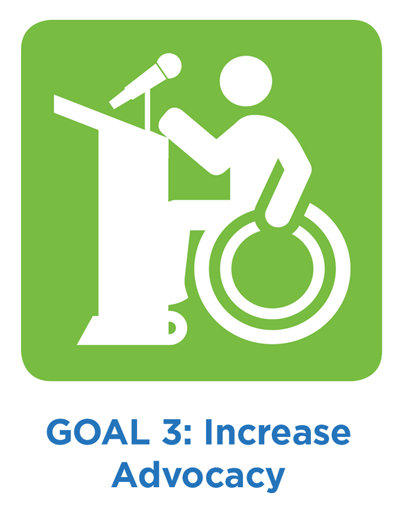Sibling Support
![]() Sibling Support hopes to address the various needs and barriers that siblings of a person with an intellectual or other developmental disability face.
Sibling Support hopes to address the various needs and barriers that siblings of a person with an intellectual or other developmental disability face.
NC Sibs is a statewide group of adult siblings of individuals with developmental disabilities and the genesis of NC’s very own chapter of the National Sibling Leadership Network. The purpose is to connect siblings with one another to provide support and information specific to the unique aspects of the adult sibling relationship. The network is currently being facilitated and grown by First In Families of NC as part of a three year initiative funded by the NC Council on Developmental Disabilities. NC Sibs seeks to provide support to adult siblings on a wide range of topics determined by members – some of the areas include future planning workshops, resource sharing and increased connectedness (through in person meetings throughout NC, monthly conference calls, private support groups and the planning of a statewide conference for siblings to be held on March 25, 2016 in Carrboro, NC.![]()
![]()
![]()
![]()
Why is NCCDD funding this initiative?
- Approximately 75% of people with intellectual and other developmental disabilities (I/DD) live with their families.
- Among siblings of individuals with I/DD, 23% are currently serving as primary caregivers.
- Approximately 1 in 3 adult siblings of individuals with I/DD plan to be the primary caregiver for their brother or sister.
- These siblings will likely begin this role without adequate preparation or information about support options, guardianship or futures planning.
- This initiative supports NCCDD's Goal 3 of new Five Year Plan: Increase advocacy for individuals with I/DD.
What are the major goals and objectives?
- To work with siblings to build networking opportunities to address isolation.
- To facilitate information sharing and education for siblings to understand their brother or sister’s needs and alternatives to guardianship.
- To create high expectations around jobs, community involvement, etc.
- To promote futures planning discussions.
What has taken place since the start of the program? (Activities)
- Establish a North Carolina Chapter of the National Siblings Leadership Network.
- First in Families North Carolina conducted a sibling needs survey to identify existing supports for siblings, accessibility of supports and areas where more supports are needed.
- Listening tour in 6 locations (rural and urban) are planned to ask questions and engage adult siblings in how best to support their roles.
- A statewide survey and 20 “SibChats” throughout North Carolina are planned to connect siblings, capture stories, provide resources and build the NC Sibling Leadership Network.
What has been achieved to date?
- Siblings have been engaged in communication and advocacy efforts throughout North Carolina.
- Greater understanding of the needs of siblings has been achieved in order to enhance the current system.
- Knowledge has increased among disability service agencies about the needs and supports available to siblings of people with I/DD in North Carolina.
What long-term changes are expected as a result of this initiative?
- Create a network of communication between siblings and providers to ensure that the system responds to the needs and expectations of these family members today and in the future.
- Increase knowledge among adult siblings of individuals with I/DD to be the primary caregivers for their brother or sister.
- Empower siblings to make systematic change and to be strong advocates for their families.
- Enhance the existing system to better incorporate sibling needs.
How can I get involved?
Click this link, http://www.ncsibs.org/#get-involved for information on getting involved.
Who is the contractor?
First in Families of NC, http://www.fifnc.org/
Who can I contact for questions?
Grantee: Betsy MacMichael, [email protected]
NCCDD: Melissa Swartz, Systems Change Manager, [email protected]
NCSibs Website: http://www.ncsibs.org/
Additional Resources
Sibling Leadership Network, http://siblingleadership.org/
NC SIbs Sibling Support Resource Guide, http://nccdd.org/images/article/initiatives/siblingresourceguide.pdf